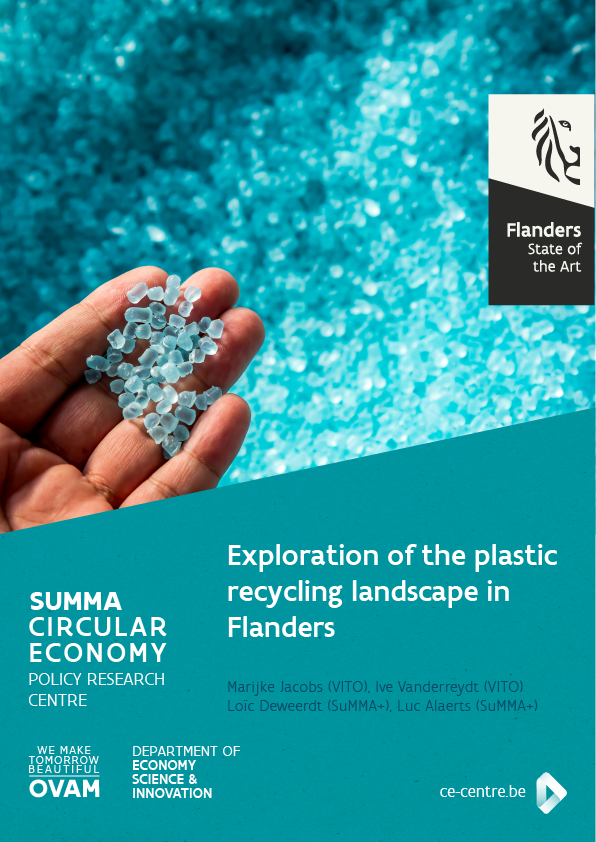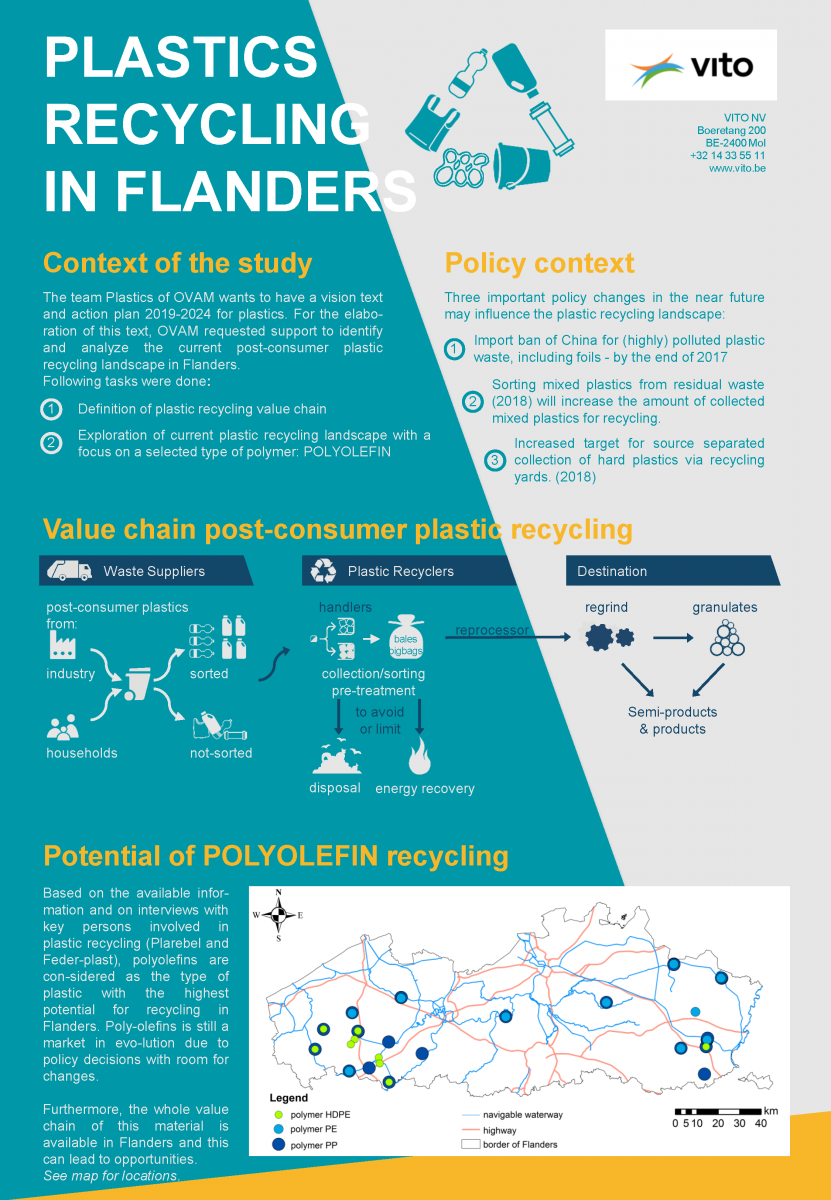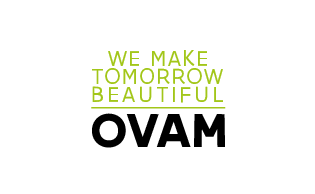2. Exploration of the plastic recycling landscape in Flanders
Exploration of the plastic recycling landscape in Flanders
Marijke Jacobs (VITO), Ive Vanderreydt (VITO), Loïc Deweerdt (Summa), Luc Alaerts (Summa)
Juni 2018
In order to identify and analyze possible bottlenecks and opportunities in the current postconsumer plastic recycling landscape in Flanders, available data sources were summarized and relevant sector organisations and companies were interviewed.
The data of the companies involved in the plastic recycling value chain in Flanders was visualized in different maps and in an interactive graph based on the type of polymer, product and sector. The obtained map focusing on the different types of polymer shows that several companies are active in Flanders along the value chain of polyolefins. Moreover, several ongoing policy developments (such as the China ban, Flemish actions to promote separate collection of plastics), make it an interesting opportunity for more local recycling activities.
Therefore, relevant companies working on polyolefins were interviewed in order to get more insight regarding the potential for circularitiy of the value chain of this type of polymer and its applications. In addition, the perspective of two involved sector organisations also supported our focus on post-consumer polyolefins.
The companies in Flanders involved in the plastic recycling value chain indicate that they perceive China's decision to forbid the import of certain types of plastic waste from the beginning of 2018 in general as positive as it can create opportunities for more activities and investments in Europe and Flanders. However, as it temporarily results in an oversupply on our market, is also leads to a (temporary?) price reduction.
Furthermore, the concerned companies often face difficulties with respect to marketing their recycled products since there is currently only a limited amount of applications for recycled plastic. As such, regulations to promote the use of recycled plastic or government subsidies might be desirable to overcome the uncertainties which can limit possible investments. This study was only an exploration of the plastic recycling landscape in Flanders to gain first insights on the circularity of certain plastics. In order to have a more complete overview, additional interviews with more companies and exact waste quantities might be beneficial.



.png)






